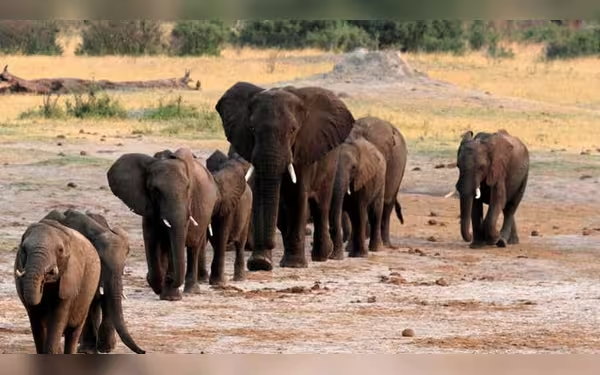Saturday, November 16, 2024 07:52 PM
WWF Warns of Over 70% Decline in Global Wildlife Populations
- Wildlife populations have declined by over 70%.
- Latin America faces up to 95% loss in animal populations.
- Immediate action is needed to protect biodiversity.
 Image Credits: thenews.com.pk
Image Credits: thenews.com.pkWWF reports a shocking 70% decline in global wildlife populations, urging immediate action to protect biodiversity and ecosystems.
Wildlife populations around the globe are facing a severe crisis, with reports indicating a staggering decline of more than 70%. This alarming trend is particularly pronounced in biodiversity-rich regions such as Latin America and the Caribbean, where the loss of animal populations can reach as high as 95%. The World Wildlife Fund (WWF) has raised the alarm, emphasizing the urgent need for action to protect our planet's precious wildlife.
According to Kirsten Schuijt, the Director General of WWF International, "The picture we are painting is incredibly concerning." This statement underscores the gravity of the situation, as many species are now on the brink of extinction. The decline in wildlife is not just a statistic; it represents a loss of biodiversity that can have far-reaching effects on ecosystems and human life.
Several factors contribute to this dramatic decrease in wildlife populations. Habitat destruction, climate change, pollution, and poaching are among the leading causes. As humans continue to expand their footprint on the planet, natural habitats are being destroyed, leaving animals with fewer places to live and thrive. Climate change further exacerbates these issues, altering weather patterns and disrupting the delicate balance of ecosystems.
The implications of losing wildlife are profound. Healthy ecosystems provide essential services, such as clean air and water, pollination of crops, and regulation of climate. When wildlife populations decline, these services are compromised, which can lead to negative consequences for human health and well-being.
It is crucial for individuals, communities, and governments to take action to reverse this trend. Conservation efforts, sustainable practices, and increased awareness can make a significant difference. Simple actions, such as supporting wildlife protection initiatives and reducing waste, can contribute to the preservation of our planet's biodiversity.
The decline of wildlife populations is a pressing issue that demands immediate attention. As stewards of the Earth, it is our responsibility to protect the natural world for future generations. By understanding the importance of biodiversity and taking proactive steps, we can help ensure that wildlife continues to thrive alongside us. The time to act is now, and every effort counts in the fight to save our planet's precious wildlife.













